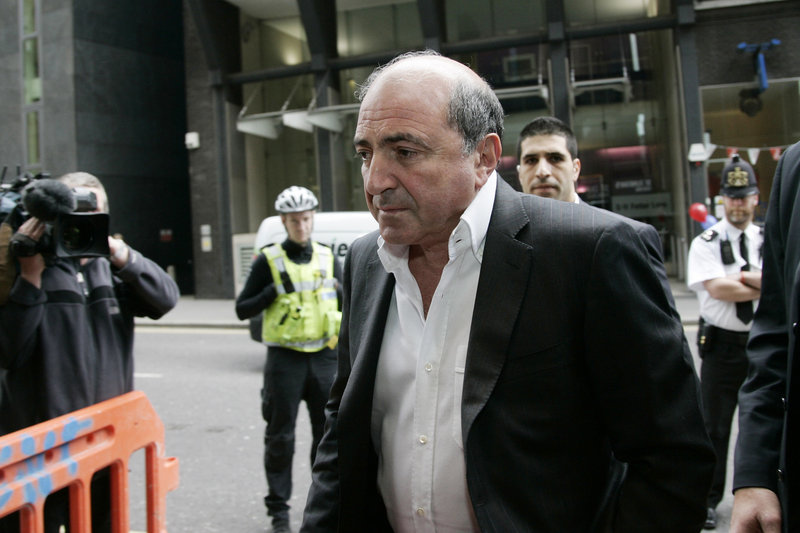Boris Berezovsky, a self-exiled and outspoken Russian tycoon who had a bitter falling out with Russian President Vladimir Putin, has been found dead in southeast England. He was 67.
In recent years, the one-time Kremlin powerbroker-turned-thorn in Putin’s side fended off attacks on his character and on his fortune in cases that often bore political undertones.
Thames Valley police said Berezovsky’s death was being treated as unexplained. They would not directly identify him, but when asked about him by name they read a statement saying they were investigating the death of a 67-year-old man at a property in Ascot, a town 25 miles west of London.
A mathematician-turned-Mercedes dealer, Berezovsky amassed his wealth during Russia’s chaotic privatization of state assets in the early 1990s. In return for backing former Russian President Boris Yeltsin, he gained political clout and opportunities to buy state assets at knockdown prices, making a fortune in oil and automobiles.
He also played a key role in the rise of Yeltsin’s successor, Vladimir Putin, but later fell out of favor with the new leader and fled to Britain to seek political asylum in the early 2000s.
Berezovsky was one of several so-called Russian “oligarchs” to butt heads with Putin.
After coming into power, the Russian president effectively made a pact: the oligarchs could keep their money if they didn’t challenge him politically. Those who refused found themselves in dire circumstances. Some were imprisoned — like the former Yukos Oil chief Mikhail Khodorkovsky — while others, like Berezovsky, fled.
Assets of these pariah businessmen, meanwhile, were acquired by state corporations or cooperative tycoons, often at bargain prices.
In the U.K., Berezovsky allied himself with prominent Kremlin critics including ex-KGB agent Alexander Litvinenko, who fled Russia with Berezovsky’s help after accusing officials there of plotting to assassinate political opponents.
Litvinenko died on Nov. 26, 2006, after drinking tea laced with a lethal dose of the rare radioactive isotope polonium-210 in a London hotel.
Copy the Story Link
Send questions/comments to the editors.



Success. Please wait for the page to reload. If the page does not reload within 5 seconds, please refresh the page.
Enter your email and password to access comments.
Hi, to comment on stories you must . This profile is in addition to your subscription and website login.
Already have a commenting profile? .
Invalid username/password.
Please check your email to confirm and complete your registration.
Only subscribers are eligible to post comments. Please subscribe or login first for digital access. Here’s why.
Use the form below to reset your password. When you've submitted your account email, we will send an email with a reset code.